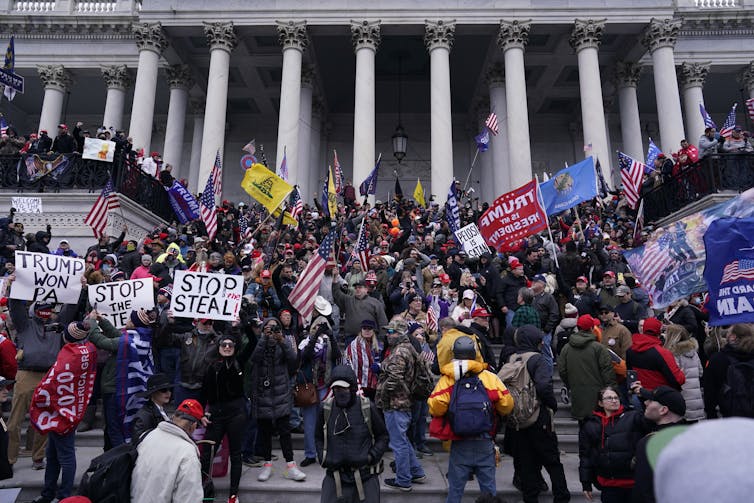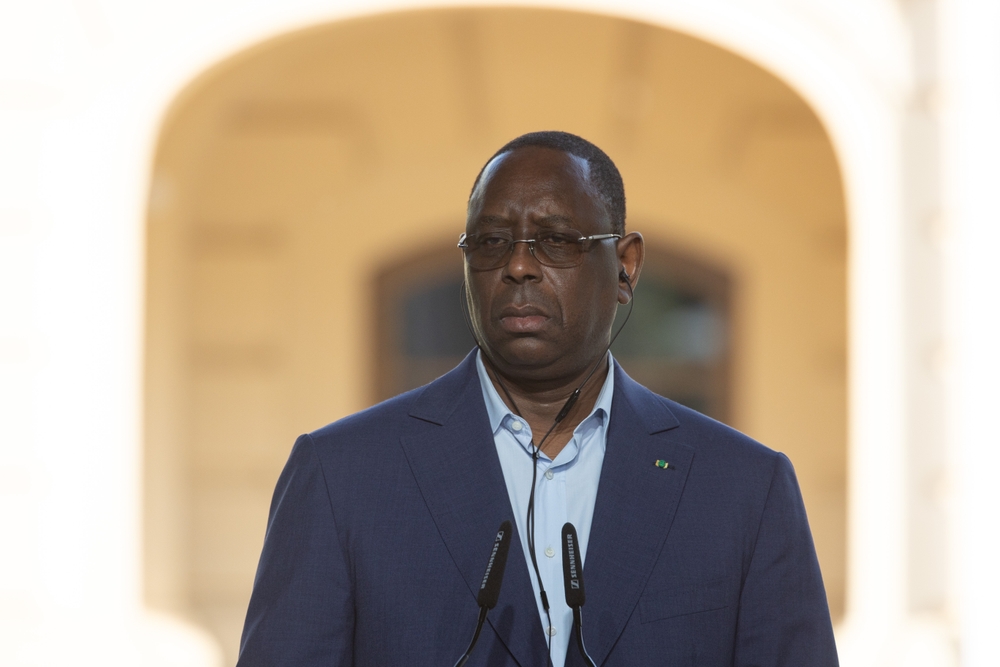In a 57-page opinion issued on Feb. 6, 2024, a federal appeals court ruled against former President Donald Trump, deciding that presidents are not immune from criminal prosecution for actions they took while in office.
The decision allows the federal prosecution of Trump for attempting to undermine the 2020 election to continue.
A three-judge panel of the U.S. Court of Appeals for the District of Columbia Circuit – two appointed by Democratic presidents and one by a Republican – affirmed the Dec. 1, 2023, ruling of District Court Judge Tonya Chutkan, in which she said that a former president does not enjoy complete immunity from criminal prosecution for actions taken while in office.
The Hill reported that Trump spokesman Steven Cheung responded to the appeals court ruling by saying, “President Trump respectfully disagrees with the DC Circuit’s decision and will appeal it in order to safeguard the Presidency and the Constitution.” The decision, Cheung said, “threatens the bedrock of our Republic.”
The appeals court panel rejected Trump’s argument that the structure of U.S. government and the demands of the presidency necessitated immunity, instead stating that his claims of “unbounded authority to commit crimes” would “collapse our system of separated powers.” In their words, “President Trump has become citizen Trump,” and therefore had only the defences available to any criminal defendant, not a special immunity privilege unavailable to anyone else.
As a scholar of judicial behaviour and American politics, I have been closely watching this case. The court’s decision, particularly if the Supreme Court allows it to stand, is likely to have ramifications across the U.S. legal and political systems for decades.
‘Divine right of kings’
Trump is the subject of multiple civil and criminal cases in both state and federal courts. He is currently appealing several of them, including one relating to his appearance on the Colorado ballot, which the Supreme Court has already agreed to hear.
In mid-December 2023, the federal government asked the Supreme Court to weigh in on the immunity dispute as well, but the court declined to do so, at least until the appeal was heard by the U.S. Court of Appeals for the District of Columbia Circuit

This particular case involves the prosecution of Trump by special counsel Jack Smith. On Aug. 1, 2023, Smith indicted Trump on four counts of violating federal law for his conduct relating to the 2020 election, including conspiracy to defraud the United States, conspiracy to obstruct an official proceeding, obstruction of and attempt to obstruct an official proceeding and conspiracy against rights. The proceeding in the appeals court was not about whether Trump committed these crimes but whether he could be prosecuted for them at all.
Trump’s argument centered on a claim of presidential immunity – the notion that a president cannot be subjected to legal action for official conduct or actions taken as part of the job. While there is no explicit language in the U.S. Constitution about such immunity, the Supreme Court had previously ruled in Nixon v. Fitzgerald that presidents can be protected from civil lawsuits for their “official acts.”
The Nixon decision did not control the outcome here, however, because that case involved a civil lawsuit rather than a criminal prosecution. As highlighted during the oral argument in Trump’s appeal, that distinction – of whether it’s a civil or criminal case – makes a world of difference.
Protecting the president from the hassles of civil litigation is one thing; permitting the president, charged in Article 2 of the Constitution with faithful execution of the laws, to be able to break those same laws with impunity is quite another.
That sort of upside-down world is precisely what led District Court Judge Chutkan to issue her sweeping ruling on Dec. 1, 2023, that presidents are not immune from prosecution for crimes committed while in office. As she put it, Trump did not have the “divine right of kings to evade criminal accountability.” The court today agreed with that sentiment.
High stakes
The oral argument before the appeals court on Jan. 9, 2024, was similarly dramatic.
The three judges spent over an hour rigorously questioning both sides, and the language was often sweeping.
Trump’s lawyer spoke of a president’s need to take “bold and fearless” executive action, to not have to constantly “look over their shoulder” for fear of prosecution and of the “republic shattering” consequences of ruling against the former president. Judge Florence Y. Pan raised striking hypotheticals about presidents assassinating political opponents or selling national security secrets to foreign governments. The lawyer for the federal government noted the “frightening future” if presidents were free to violate the law while in office.
The court’s opinion addressed Trump’s argument that future presidents would be unable to take decisive action for fear of prosecution. The judges ruled that the risk of “chilling … Presidential action appears to be low” and was outweighed by the public’s interest in accountability.
The appeals court judges included a passage from a Supreme Court opinion in their decision:
“No man in this country is so high that he is above the law. No officer of the law may set that law at defiance with impunity. All the officers of the government, from the highest to the lowest, are creatures of the law and are bound to obey it.”
That principle, the appeals court panel wrote, “applies, of course, to a President.”
The court’s Feb. 6, 2024, decision will have a substantial impact, at least until any final ruling is issued by the Supreme Court.
Trump can be criminally prosecuted for the actions he took to overturn the 2020 election. Whether the case makes it to trial or results in a conviction, what happens to all the other pending cases involving Trump, and whether the former president is returned to the White House, are unanswered questions so far.
The Supreme Court will surely be asked to provide some of those answers.
Authored by
Claire Wofford Associate Professor of Political Science, College of Charleston
This Article was first published on The Conversation and is republished under the Creative Commons Licence



